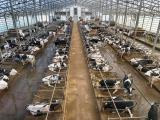Apr 10, 2012 (CIDRAP News) – Dutch export controls remain an obstacle to the publication of a study by Ron Fouchier, PhD, and colleagues on lab-modified, mammalian-transmissible H5N1 viruses, according to a National Public Radio (NPR) report today.
A US government biosecurity committee recently approved full publication of Fouchier's study describing H5N1 viruses that can spread among ferrets, as well as a similar study by Yoshihiro Kawaoka, DVM, PhD, and colleagues at the University of Wisconsin.
Fouchier said the Dutch export regulations so far have prevented him from submitting his revised manuscript to Science and that the Dutch government will hold a meeting Apr 23 to consider the issue. National laws limit the exporting of technologies and information that could be used for weapons, the story noted.
At a conference in London last week, Fouchier had said he could not share the full details of his study, because of the export controls.
Information produced by basic research is normally exempt from such controls, provided the researchers are freely sharing their findings, said Alice Gast, president of Lehigh University, who recently co-chaired a panel that studied how the laws affect science, according to NPR.
In the case of the H5N1 research, the National Science Advisory Board for Biosecurity Board (NSABB) in December recommended against full publication of the studies by Fouchier and Kawaoka. Both authors agreed to submit "redacted" versions of their reports, with details stripped out. Since this no longer qualified as full sharing of the data, NPR reported, US and Dutch export controls took effect.
But the NSABB, after hearing revised reports from the authors in March, reversed itself on Mar 30 and recommended publishing the papers in full. Fouchier told NPR that the Dutch government, unlike the United States, has not lifted its export restrictions on his paper. He said he believes his study is the type of basic research that is exempt from the export controls, but he must await the outcome of the Apr 23 meeting before he can act.
Also today, NSABB member Michael Imperiale, PhD, said the impossibility of devising a mechanism for limited, selective sharing of the full H5N1 studies was a major factor in the board's reversal of its earlier recommendation, according to a news report in Nature.
Imperiale, a microbiologist at the University of Michigan, said international discussions led to a conclusion that there was no practical way to share the data selectively and that export controls might restrict distribution anyway. Thus the NSABB was faced with an all-or-nothing choice, he told Nature.
The story also said that US and Dutch authorities are expected to finish within "weeks" their reviews of the safety conditions for research that involves making H5N1 viruses more transmissible in mammals. In January leading flu researchers imposed a voluntary moratorium on such studies.
Kawaoka said the completion of the US and Dutch government reviews should clear the way to end the resarch moratorium, but others warned that ending it before a broader debate on such research takes place would be premature and could be seen as arrogant, according to the Nature report.
See also:
Apr 10 NPR story on export controls
Apr 10 Nature story
Apr 3 CIDRAP News story "H5N1 mutations, other details unveiled at H5N1 meeting"




















